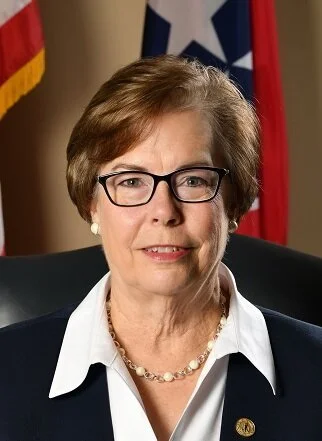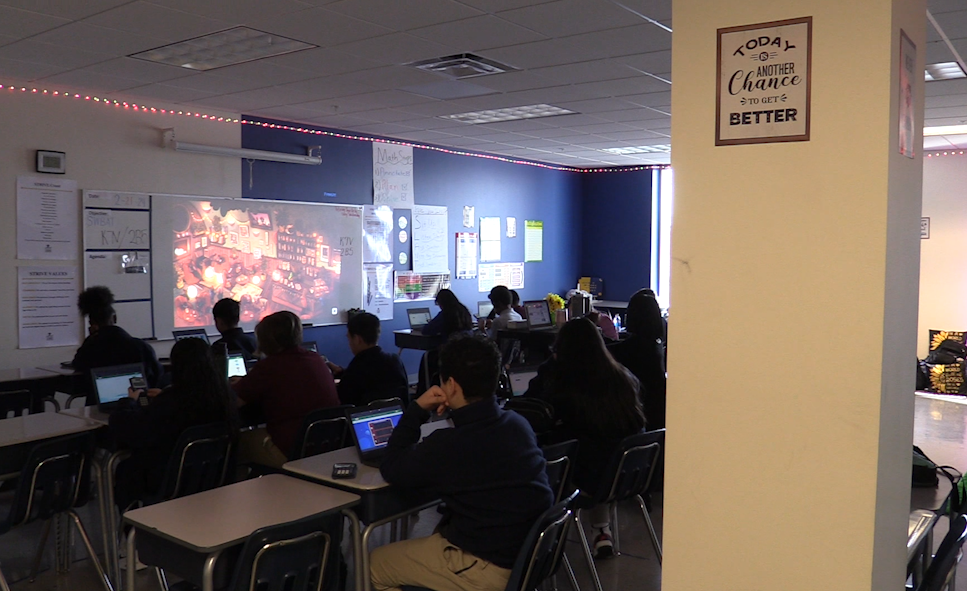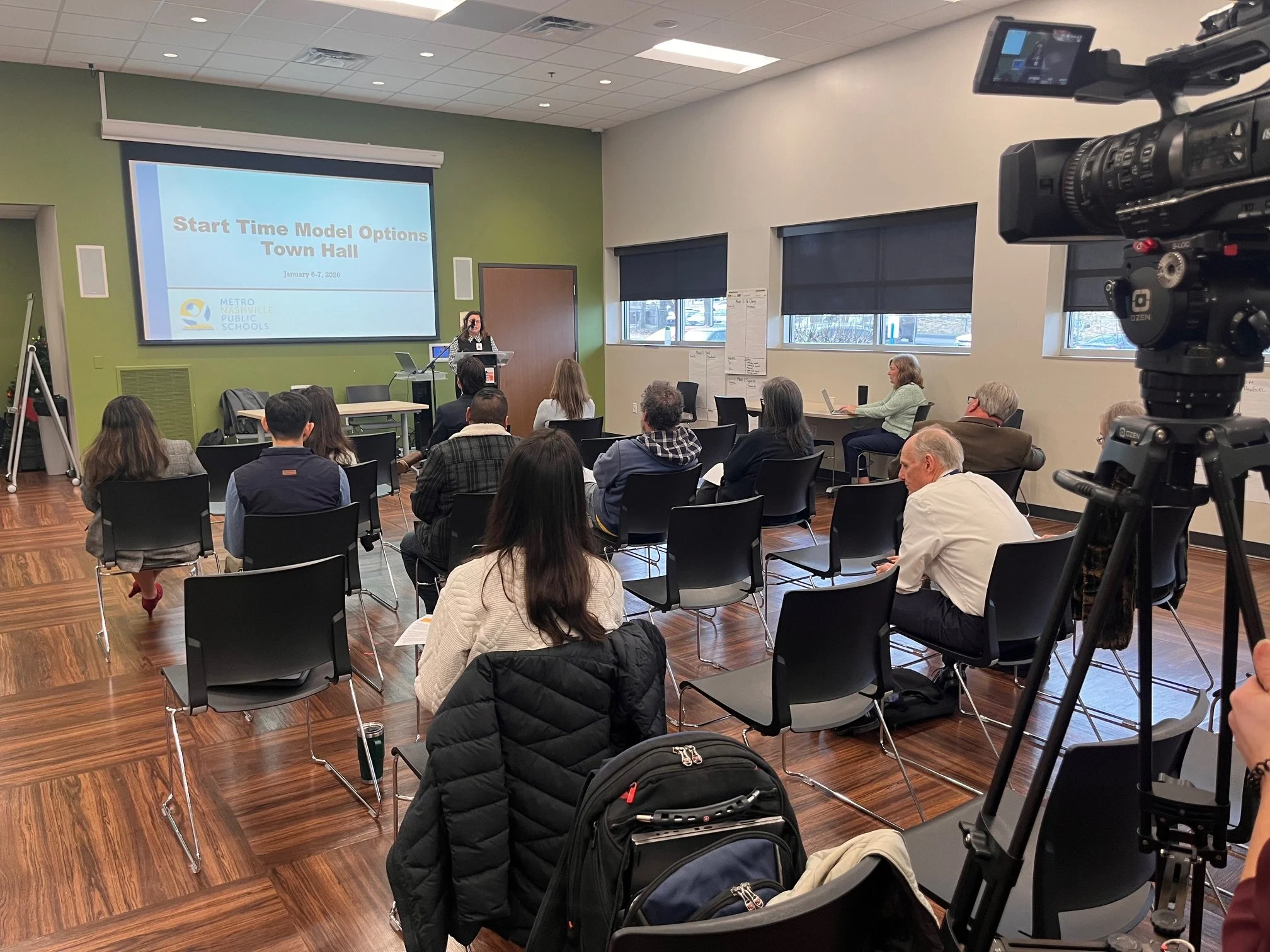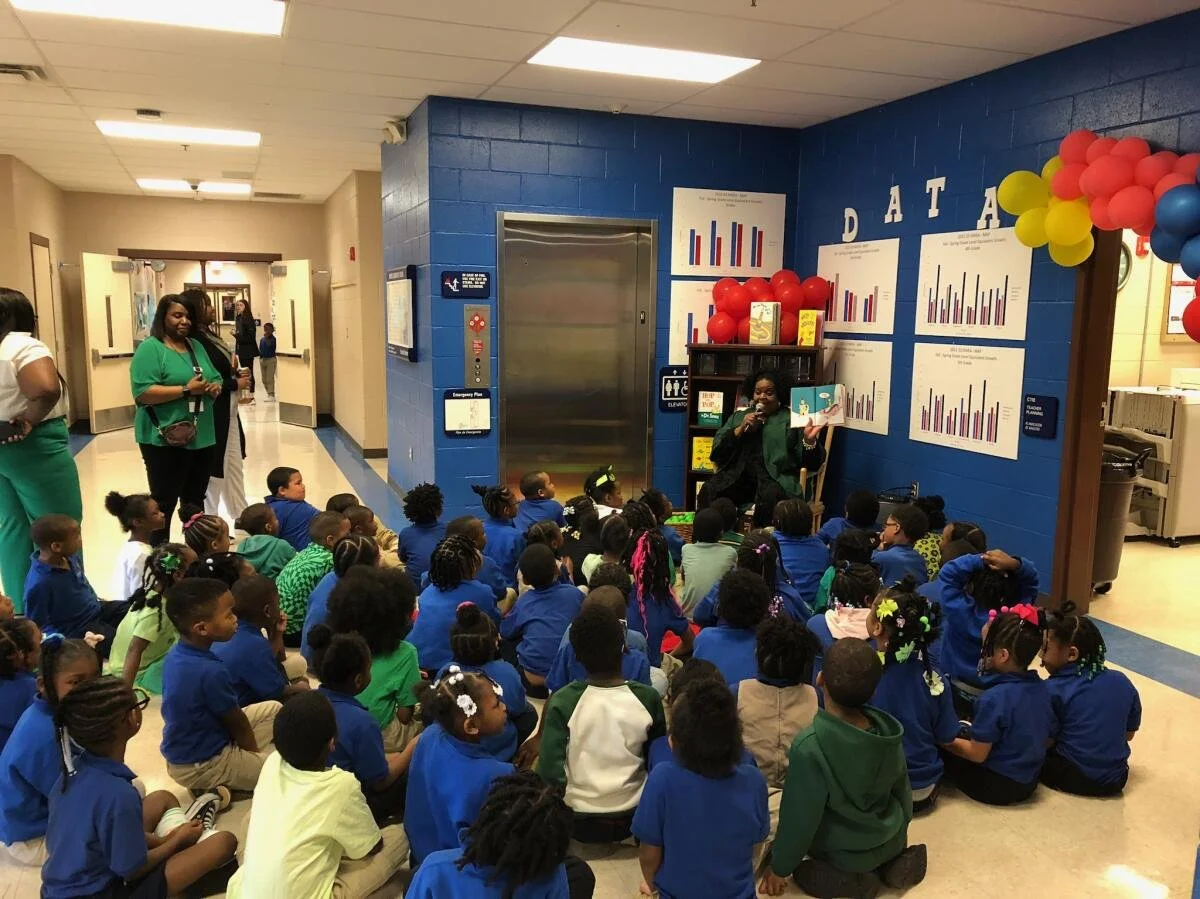NASHVILLE NEWS
The change will move most high school start and dismissal times forward by twenty minutes, and elementary start and dismissal times forward by 10 minutes.
A spokesperson for Metro Nashville Public Schools says as of Thursday night, 17 schools were still without power, and another eight were experiencing partial outages due to Winter Storm Fern.
On a 6-2 vote, the Tennessee Public Charter School Commission granted Knowledge Academy at the Crossing’s appeal for a five-year renewal of its charter agreement.
The Gate School would utilize the Harkness Method, which involves discussion-based teaching, with small groups of students sitting around an oval table rather than in rows of desks.
One board member questioned whether proposals to change start times truly addressed student needs, while others expressed concerns about busing.
The Davidson County Chancellor issued an order Thursday that clears Metro Nashville Public Schools to move forward with a controversial school rezoning plan for South Nashville and Antioch.
KA @ the Crossings is appealing last month’s decision by the Metro Nashville Public Schools Board of Education to deny a new charter agreement with the school.
STRIVE leaders announced Wednesday that they’re planning to close the school at the end of the 2025-26 school year, in part because their building has been sold and the new owners are asking the school to vacate at the end of June.
The district unveiled three proposals for school start times this week, including one that shifts high school bells by 20 minutes.
Just 11 percent of participating students tested proficient in math on state testing during the program’s initial 2022-23 year. That number rose to 19.5 percent in the 2024-25 school year.
56 percent of the commission’s schools received either an A or a B letter grade, 7 percentage points higher than the state average.
A Tennessee Firefly analysis of the state’s School Report Card, released this week, found that student performance dropped in every subject once MNPS took over the school in the 2024-25 school year.
LEAD Public Schools filed a motion for contempt against Metro Nashville Public Schools on Thursday, alleging the district is hiding information from parents in South Nashville to steer their children away from attending LEAD Cameron Middle School.
Members of the Metro Nashville Public Schools (MNPS) Board of Education voted unanimously against renewing Knowledge Academy at The Crossings' charter for another 10 years on Tuesday night.
MNPS staff told school board members Tuesday night that 67 percent of the more than 16,000 respondents in an online survey supported adjusting high school start times.
If approved, the proposed Music City Academy would serve up to 500 high school students in Nashville with a team-centered, career-connected learning model that utilizes athletics and multiple career and technical education (CTE) paths.
Differentiated compensation based on performance and strategic staffing structures to expand the reach of effective educators are both among SCORE’s recommended policy priorities for 2026 to “elevate excellence in teaching.”
The university president said TSU has exceeded its deficit goals in fiscal year 2025 by $13.2 million and is expected to exceed them again in fiscal year 2026.
Sixteen of Memphis-Shelby County Schools’ 44 Reward schools are public charter schools, along with eight of Nashville’s 28 Reward schools.
The Forge School posted a note to supporters this week, announcing that leaders are no longer planning to apply in 2026, in part due to challenges in raising start-up funding.
The district’s Hispanic student graduation rate dropped 6.1 percent in the 2024/25 school year to 73.2 percent.
Metro Nashville Public Schools and the Nashville Public Education Foundation recognized 24 public school teachers and one Pre-K educator as 2025 Blue Ribbon Teachers at a ceremony on Thursday.
Metro Nashville Public Schools announced plans for a districtwide review of school start and end times.
Nashville’s newest public charter school, The Rock Academy, is set to open next fall as Tennessee’s first “opportunity charter school,” a model dedicated to re-engaging at-risk youth who have faced significant barriers to education.
An evaluation team of board members used student growth, proficiency, attendance, and other areas to rate Dr. Battle across four evaluation categories, including literacy, numeracy, social-emotional learning (SEL), and transitions.
Through a partnership with the Northern Middle Tennessee Workforce Board and the Tennessee Department of Labor and Workforce Development, students are now able to access multiple workforce services at Nashville State Community College’s East Davidson Campus.
The school is designed to provide long-term support to students who are at-risk because they’ve either dropped out, faced criminal charges, have been retained at least twice, or are more than a year behind academically.































